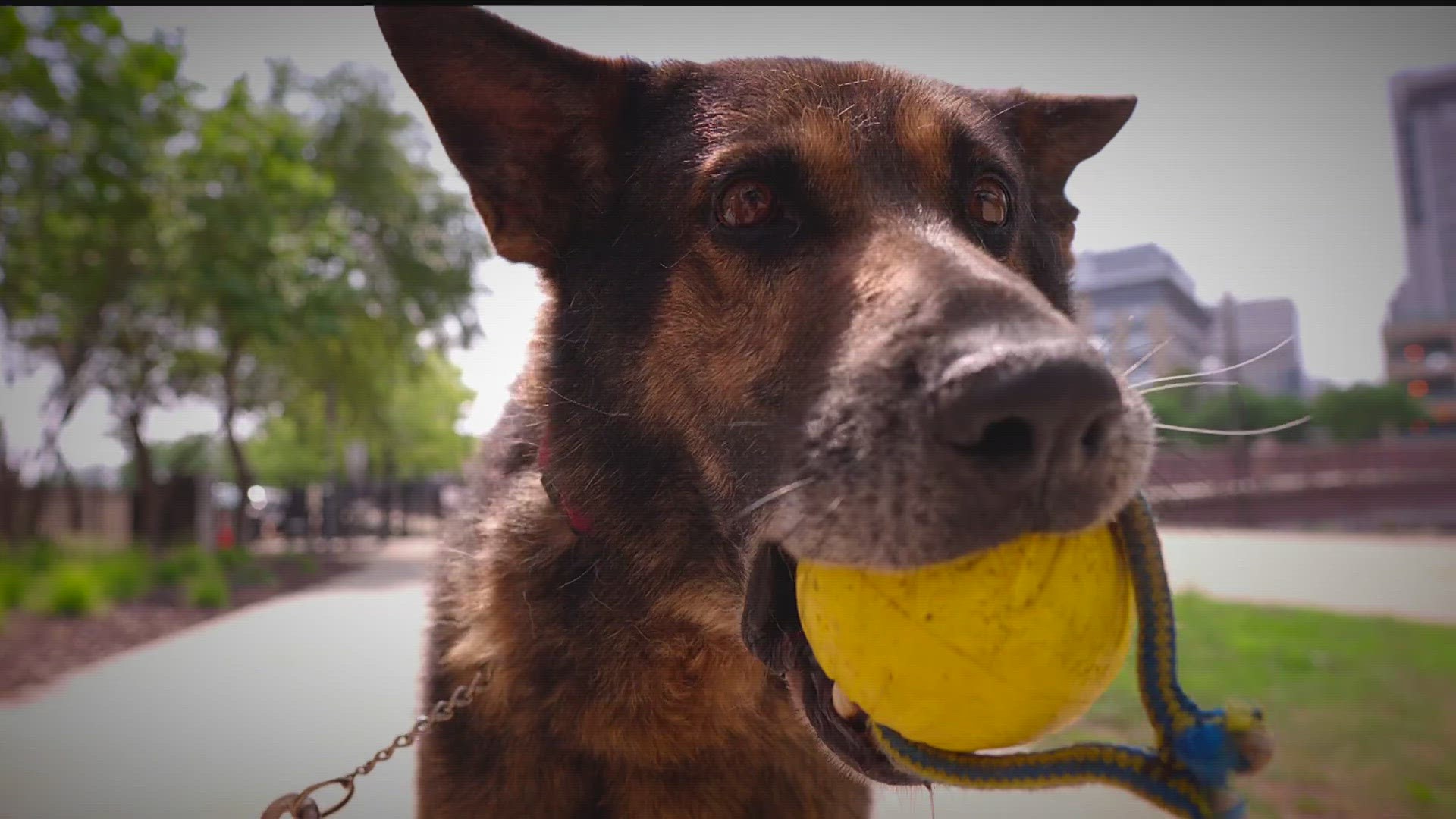ROCHESTER, Minn. — As Minnesota moves forward on the road of legal marijuana, so too does Olmsted County and its sheriff’s office – a move drawing mixed emotions from the K9 unit.
“It’s going to be difficult, that’s for sure,” said handler Rian Jones. “I spend more time with Jango, more consecutive days sometimes, than with my family.”
Jones’ longtime partner, Jango, will retire soon. He’s the oldest of the agencies nine K9s, but it’s not because of his age. It’s because he can’t be trained to stop detecting pot, which could compromise narcotics searches in the future.
It’s a skill Captain Ryan Mangan says they stopped teaching new dogs in 2019 as the agency anticipated the legalization of cannabis in Minnesota.
“It changes how we do things every day,” said Cpt. Mangan.
Cpt. Mangan calls the dogs reliable. He just not ready to take the risk, he says, as the new law continues to roll out.
“Based on the dog’s indication of maybe marijuana, and we do a search based on that, and we find marijuana, that could potentially be an illegal search,” said Cpt. Mangan. “We’re all still learning that, learning about it, learning how to navigate through this change.”
The change is also expensive. A new K9 can cost about $12,000 without any training and at just a year old. That’s followed by four months of initial training and then more training every day.
“It’ll be an adjustment trying to get him used to staying at home,” said handler Adam Waletzki, who has been partnered with nearly 10-year-old Cobra since 2015. “He’s high drive all the time.”


The two are the last of the sheriff’s office’s drug-sniffing dogs who will be relegated to just tracking and apprehension until the two retire on January first. It’s a heartache the handlers are trying handle.
“That bond is hard to break and it’s going to be difficult the first couple weeks on the road,” said Waletzki. “I’ve been preparing for it.”
It’s the end of an era in Olmsted County and only Jones has plans to be assigned to a new K9 sometime next year.
The agency will still have one of its dogs able to detect cannabis – but only within the jail system, where the deputies say it’s still illegal to possess.
Watch more local news:
Watch the latest local news from the Twin Cities and across Minnesota in our YouTube playlist:

